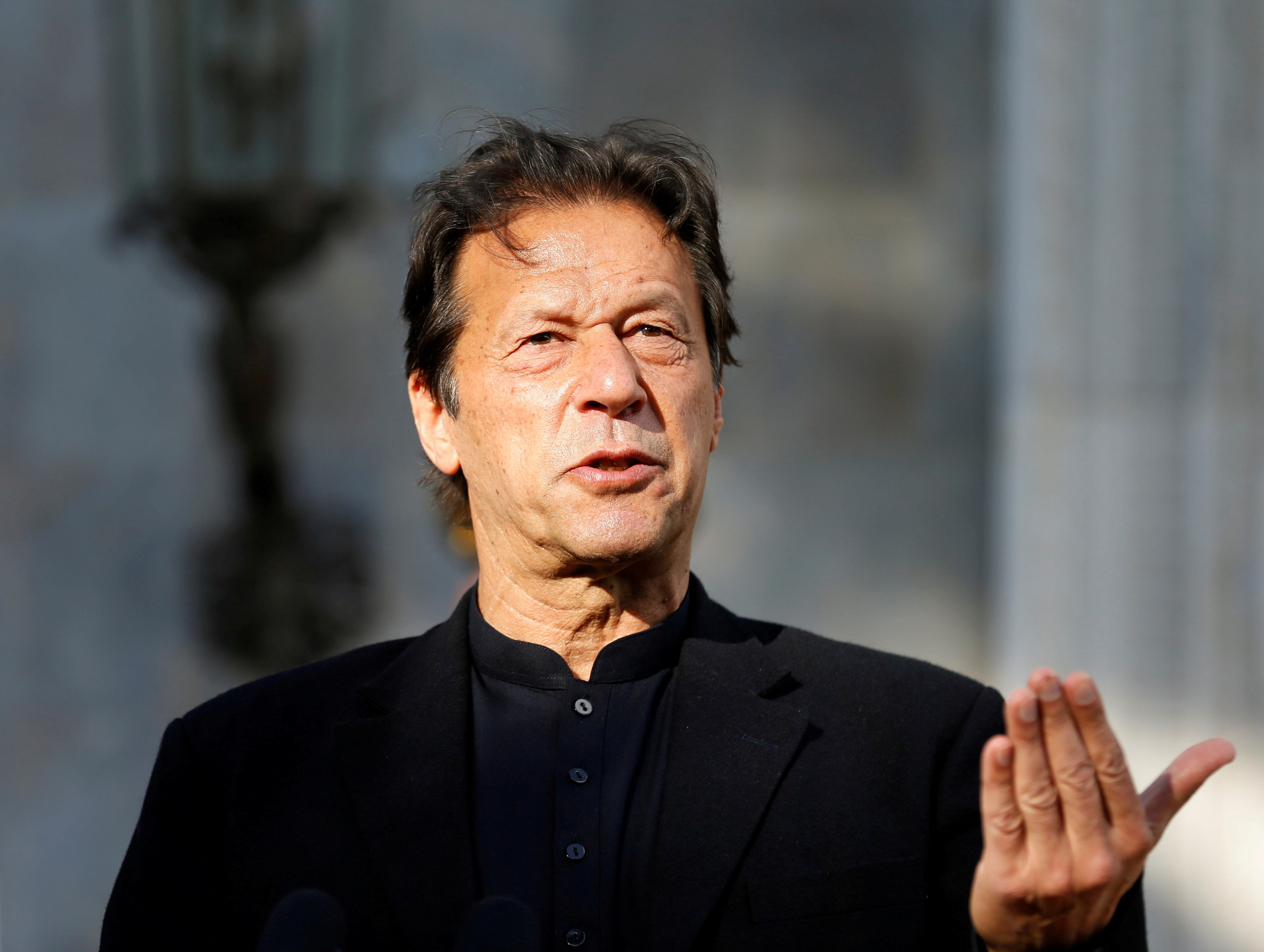Khan criticizes top Pakistani officials over foreign trips amid crisis
Ousted Pakistani Prime Minister Imran Khan criticizes the country's Prime Minster and Foreign Minister for spending taxpayer money on foreign trips at a time of deep economic crisis.
-

Imran Khan, then-Pakistan's Prime Minister, speaks during a joint news conference with Afghan President Ashraf Ghani (not pictured) at the presidential palace in Kabul, Afghanistan, November 19, 2020. (Reuters)
Ousted former Pakistani Prime Minister Imran Khan criticized the country's officials as Pakistani Prime Minister Shehbaz Sharif flew to the UK for the coronation ceremony of King Charles III, and Pakistani Foreign Minister Bilawal Bhutto Zardari visited India to attend the Shanghai Cooperation Organization (SCO) meeting.
Khan lashed out, during a Pakistan Tehreek-e-Insaf (PTI) rally, at the Prime Minister and Foreign Minister for taking foreign trips at a time when Pakistan is going through a deep economic crisis.
According to Khan, "Pakistan is being humiliated in the world. We ask the question, Bilawal you are touring the entire world but first tell us, before going, do you ask anyone that you're spending the country's money on a trip, so what will be the benefit or loss from it?"
The PTI rally supported the Supreme Court, Constitution, and Chief Justice of Pakistan Umar Ata Bandial after a Pakistan Supreme Court decision halted the implementation of a bill, passed by parliament last month, which was aimed at curbing the powers of the Chief Justice.
Pakistan struggles with inflation and IMF conditions
As the government in Islamabad struggled to meet International Monetary Fund (IMF) conditions to unlock an alleged bailout, the year-on-year inflation in Pakistan hit 35.37% in March.
With month-on-month inflation at 3.72%, according to government data released Saturday, the average inflation rate for 2022 was 27.26%.
The Pakistani economy has been exacerbated by political instability, the global energy crisis, earthquakes, and the devastating floods that submerged large portions of the country in 2022. As a result, the country requires billions of dollars of financing to service existing debt. It is also worth noting that foreign exchange reserves have also dwindled and the value of the rupee diminished.
"The way inflation is rising, I believe a famine-like situation has been simmering," said Shahida Wizarat, a Karachi-based analyst.
The country in South Asia, which is home to more than 220 million people, must implement stringent tax changes and raise energy costs if it wants to receive the following tranche of a $6.5 billion IMF loan and avoid defaulting.
According to the Finance Ministry, "Market frictions caused by relative demand and supply gap of essential items, exchange rate depreciation, and recent upward adjustment of administered prices of petrol and diesel" are the main reasons why inflation is anticipated to remain at "elevated" levels.
Read more: New doc leaks: Pakistan can't sacrifice China ties for US partnership

 3 Min Read
3 Min Read








